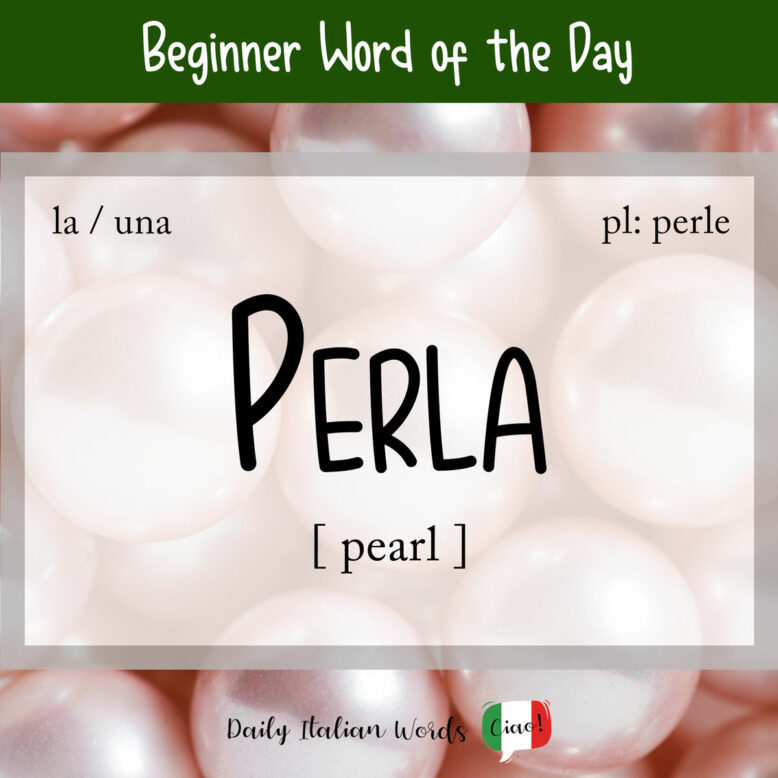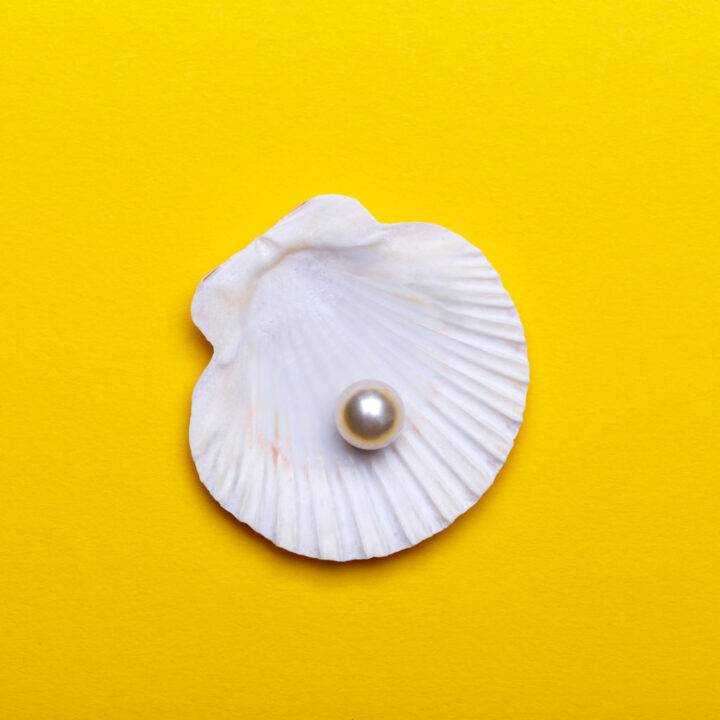The Italian word for pearl is the similar sounding perla (feminine, plural: perle). It is thought that both derive from the Latin perna (leg), so called for the leg-of-mutton shape of the mollusk shells from which they originate.

Pearls broadly fall into three categories: natural pearls (perle naturali / vere), cultured pearls (perle coltivate) and imitation pearls (perle finte). Natural pearls occur when a microscopic intruder enters the shell and the mollusk, irritated by the presence of the intruder, covers it with pearl sac. Cultured pearls are the response of the mollusk to a tissue implant whereas imitation pearls are made of other materials such as plastic or glass.
What’s more, pearls can be either freshwater (acqua dolce), meaning that they are cultivated in lakes or rivers, or seawater (acqua salata).
Il valore di una perla non si distingue solo dal colore, ma anche dalla forma e dal lustro.
The value of a pearl is not only distinguished by the colour, but also by the shape and lustre.

By extension, perla can be used to talk about anything that resembles a pearl in physical appearance such as beads or medicine capsules.
Figuratively speaking, Italians use perla to describe things endowed with qualities we associate with pearls, such as whiteness, brightness, roundness, rarity, goodness or beauty. Some possible translations include gem, treasure or jewel. You can also use perla rara (rare pearl) to describe a unique individual.
La figlia di Gianluca è veramente una perla.
Gianluca’s daughter is a real gem.
Bellagio è la perla del Lago di Como.
Bellagio is the jewel of Lake Como.
Teeth (denti) in particular tend to be referred to as perle if they are shiny and white, in the same way we say pearly whites in English.
Some interesting expressions with the word perla include:
- perle di saggezza = pearls of wisdom
- dare le perle ai porci = (lit. to give pearls to pigs) to give something precious, beautiful or important to somebody who cannot appreciate its value
Curiously, perla can also be used in a playful sense to mean big mistake or blunder.
Ad un certo punto, nel bel mezzo del suo discorso, ha infilato una perla che ha fatto scoppiare a ridere tutto l’auditorium.
At a certain point in the middle of his speech, he made a blunder that made all the auditorium burst out laughing.
Heather Broster is a graduate with honours in linguistics from the University of Western Ontario. She is an aspiring polyglot, proficient in English and Italian, as well as Japanese, Welsh, and French to varying degrees of fluency. Originally from Toronto, Heather has resided in various countries, notably Italy for a period of six years. Her primary focus lies in the fields of language acquisition, education, and bilingual instruction.


